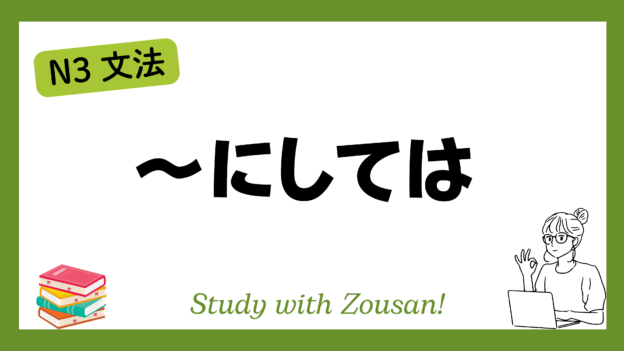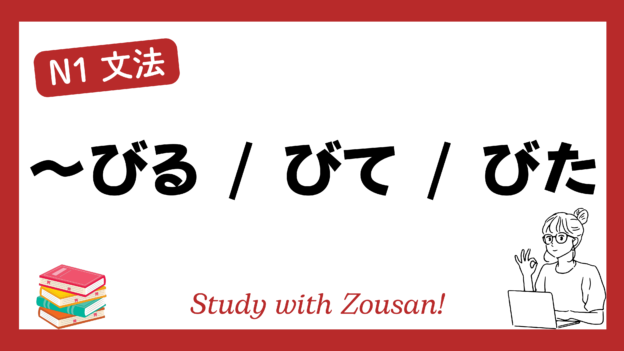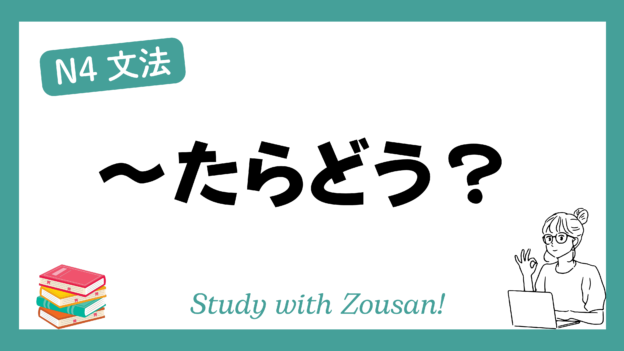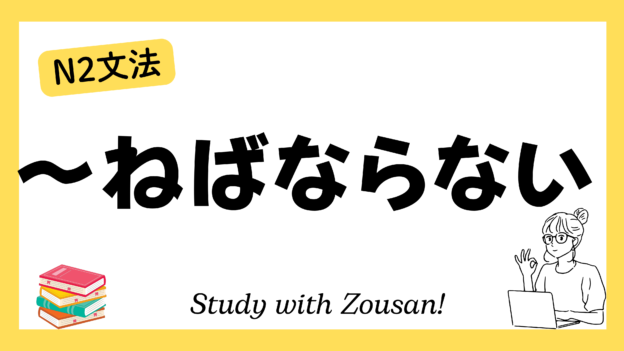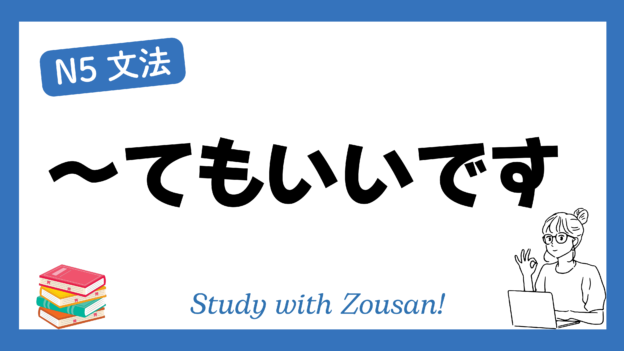N3文法:~にしては
Meaning: “For…”, “Considering…”
“~にしては” is used to express a contrast between an expectation and reality. It is often translated as “for” or “considering” and is used when something is different from what you would normally expect, given a certain situation or standard. It shows that the result is surprising or unexpected compared to what one would assume.
※Note: “~にしては” is typically used when something turns out better or worse than expected, given the situation.
Structure:
| Verb (casual) | + にしては |
| Noun |
Example:
-
-
-
🌟 彼は初心者にしては、かなり上手にギターを弾きます。
(かれ は しょしんしゃ に しては、かなり じょうず に ギター を ひきます。)
For a beginner, he plays the guitar quite well. -
🌟 この部屋は、東京にしては家賃が安い。
(この へや は、とうきょう に しては やちん が やすい。)
For Tokyo, this room is cheap. -
🌟 彼は40歳にしては、若く見える。
(かれ は 40さい に しては、わかく みえる。)
For a 40-year-old, he looks young. -
🌟 今日は冬にしては暖かいです。
(きょう は ふゆ に しては あたたかい です。)
It’s warm for a winter day. -
🌟 あの子供は、小学生にしては背が高い。
(あの こども は、しょうがくせい に しては せ が たかい。)
That child is tall for an elementary school student. -
🌟 彼の日本語は、外国人にしては上手です。
(かれ の にほんご は、がいこくじん に しては じょうず です。)
His Japanese is good for a foreigner. -
🌟 彼女は若いにしては、落ち着いている。
(かのじょ は わかい に しては、おちついて いる。)
For someone so young, she is calm and composed. -
🌟 彼は学生にしては、かなりお金を持っている。
(かれ は がくせい に しては、かなり おかね を もっている。)
For a student, he has a lot of money. -
🌟 このレストランは高級店にしては、料理が普通だ。
(この レストラン は こうきゅうてん に しては、りょうり が ふつう だ。)
For a fancy restaurant, the food is ordinary. -
🌟 今日は夏にしては涼しい。
(きょう は なつ に しては すずしい。)
It’s cool for a summer day.
-
-



